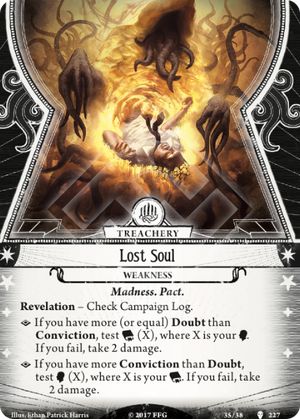Note: There is some disagreement (see comments below)
This is not a review, instead it is for those lost souls who choose to play with Calvin Wright
I couldn't find out how this card interacts with Calvin Wright with a google search so here is my interpretation (this also applies to other investigators)
Using the top part of this card in the example, the skill test timing is broken down to steps. ST.1 is that we determine that this is a [Intellect] skill test ST.5 is when modifiers are added to the investigators base skill value for the test type ([Intellect] in this case), if Calvin has 4 horror on him, then with his ability he will add +4 to a total modifier value of 4. ST.6 is when failure/success is determined. The difficulty of the test is Calvin's [Willpower]. As this is an [Intellect] test, at no point where we instructed to modify Calvin's [Willpower] value, so therefore the test difficulty is 0. As 4>0, Calvin is successful in this test.
This applies to other investigators too. Using Daisy Walker with St. Hubert's Key, Daisy would be testing 6 [Intellect] against 3 [Willpower]. Because the skill test is an [Intellect] test, we add the +1 modifier from St. Hubert's Key, but do not add the +1 Willpower modifier from St. Hubert's Key.
This is not an official interpretation as one doesn't exist yet, I hope this helps!
KakuRainbow
